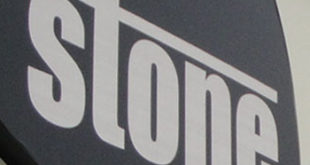With news of the dreaded credit crunch coming in daily, we have noticed that component prices are starting to creep up. When you think that all this stuff has to be shipped in from the Far East, and orders probably have to be placed months in advance, rises in transport costs will only serve to increase prices further in the busy months to come.
If prices should start to rise, then our customers may cut back on new purchases and ‘make do and mend’. However, many people rely on their computers, whether it be for business, selling on eBay or living their life by email. They need them to be working, whatever the financial situation. We have certainly been busy with repairs and upgrades.
Windows Home Server software has made its debut into the UK, albeit very quietly, and is available for under £100. Having recently acquired a 120-day eval copy, we installed it onto an FJS server (you can use any reasonable PC). The set-up procedure is very straightforward and after the now familiar update routine, it was all up and running. Next comes the Connector Software that has to be installed on any client machine. This again is a quick process and sets up data areas and a back-up routine for each client. We left the machines running overnight, and the next morning found it had indeed run a comprehensive back-up from the test PC. To trial it properly, it could be useful for backing up data from customer machines on the bench when required.
We’ve just discovered Puppy Linux, a tiny distro that, like all other versions, can be launched from a live CD (or USB stick). It runs in RAM and makes no changes to an existing OS. Therefore, take one non-bootable Windowsbox, launch Puppyto its familiar-feeling GUI, click once to mount the hard drive, and an external USB drive (no drivers required), and hey presto you have access to the Windowsuser areas, and can copy across all that data. Job done! There has been quite a proliferation of fake anti-viruses recently. Win Anti-virus, 2007, XP and Vista anti-virus to name but a few. Some of them can be quite easy to get rid of just by editing the start up or the registry, but others are more resilient, and require numerous scans to get rid of them.
Some other useful utilities I can recommend this month are Driver Detective and one anonymously called
‘Unknown Device Driver’. These are a real boon when you are presented with a load of question marked lines in Device Manager. They will seek out the drivers for all the components, and find updates where applicable. Also, although I am always a bit wary of registry cleaners, one we have found lately to work very well is called Eusing Free Registry Cleaner. It finds numerous errors and redundant entries and can deal with them all in a trice.
A dead laptop came in one day (sounds like the opening line of a joke). We have had quite a few since we found a local repair specialist. It was indeed a write-off, so we offered to transfer all the data. We remarked to the customer that she seemed to have 23 GB of data, which as a business user she was most surprised at. On further investigation of file sizes, it turned out the culprit was a modem log file called ‘vpclog’ that, owing to a programming error –grows like a tapeworm.
Big supermarkets are getting further involved in technology sales. It led me to wonder, are their boxes stamped with a sell by date, or better still a use by date?
 PCR Tech and IT retail, distribution and vendor news
PCR Tech and IT retail, distribution and vendor news


